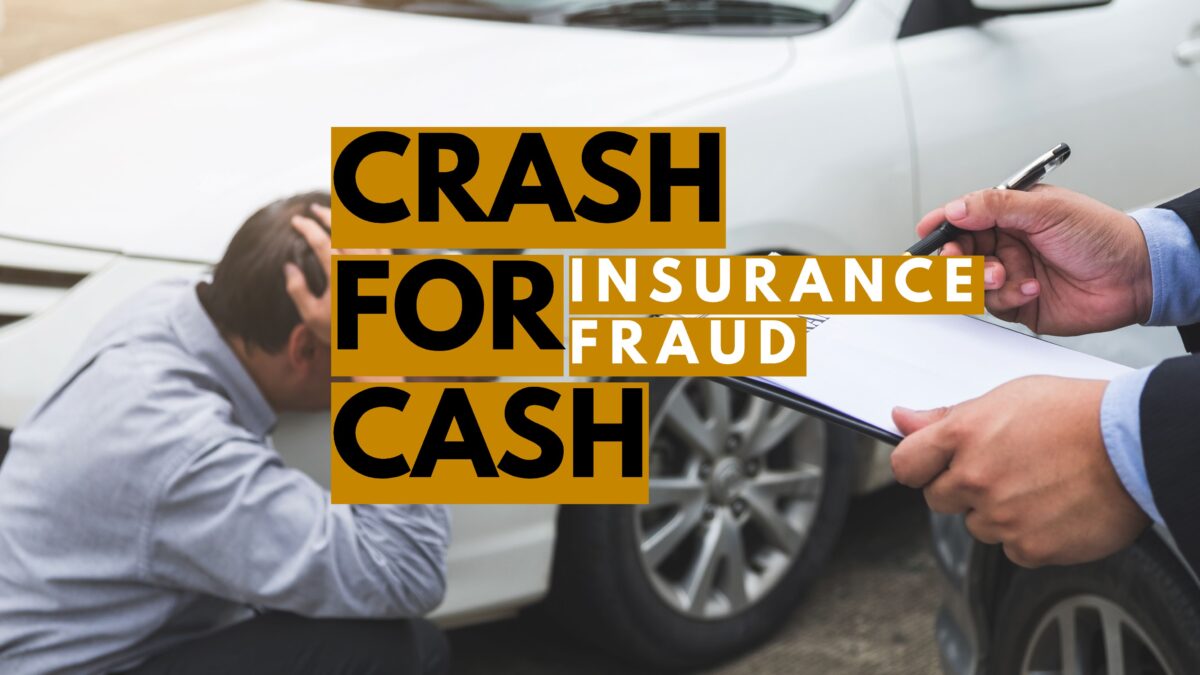Crash for cash, also known as staged accidents or induced accidents, is a form of insurance fraud that involves intentionally causing or staging a car accident in order to collect insurance payouts. These scams can be financially devastating for individuals and businesses, and it’s important for drivers to be aware of the telltale signs and to take steps to protect themselves from being targeted.
Crash for cash scams often involves the participation of multiple individuals, including the “accident ringleader,” who orchestrates the scam, and “accomplices,” who may play the role of passengers or witnesses.
The scam may be carried out in a number of ways, such as by intentionally causing a collision with another vehicle or by intentionally stopping short in order to cause a rear-end collision.
GET FREE SCAM ALERTS VIA EMAIL AS SOON AS THEY ARE EXPOSED
NEVER GET SCAMMED AGAIN!
Scammers never stop devising schemes to separate us from our hard-earned money. So, make sure to sign up for our weekly email scam alerts. TotalScam!™ Alert will notify you as soon new scams are discovered.
GET FREE SCAM ALERTS VIA EMAIL AS SOON AS THEY ARE EXPOSED
SUCCESS! YOU'VE SUBSCRIBED!
Scammers change tactics all the time in order to separate us from our hard earned money. Leave your information below and TotalScam!™ Alert will notify you as soon new scams are discovered.
In some cases, crash-for-cash scams may involve the use of “flash for cash” tactics. For example, drivers may flash their headlights or signals to indicate that it is safe to proceed, only to cause a collision once the other driver has started to move. Additionally, these scams may also involve the use of “ghost” vehicles. In these instances, the driver of the scam vehicle intentionally causes a collision with a vehicle that does not actually exist.
Telltale signs and red flags of crash for cash scams
There are several telltale signs that drivers should be aware of when it comes to crash for cash scams. One red flag is if the other driver seems overly eager to exchange insurance information or to settle the claim quickly. This may be a sign that the driver is attempting to cover up the fact that the accident was staged. Drivers should also be wary of drivers who seem unfamiliar with the area or who appear to be following them closely, as these may be indicators of a staged accident.
Multiple passengers or witnesses at the scene of an accident may indicate that the driver is trying to create the appearance of a legitimate accident to increase the chances of a successful insurance claim. Pay attention to this warning sign.
In order to protect themselves from crash for cash scams, drivers should take the following precautions:
- Stay alert and be aware of your surroundings, especially when driving in unfamiliar areas or at night.
- If you are involved in an accident, do not exchange insurance information or agree to settle the claim until you have had a chance to assess the situation and determine if the accident was legitimate.
- Consider installing a dashboard camera or other recording device in your vehicle to document any accidents or incidents.
- If you suspect that you have been targeted in a crash for cash scam, report the incident to the police and your insurance company as soon as possible.
Expose a Scam
The following phone numbers, websites, and emails have been reported to us by the consumer. If you feel this information is incorrect, you may submit a request for removal or correction by contacting us using this form.
Submit phone numbers, websites, or email addresses associated with a scam. Your submission will be published as soon as it gets reviewed by one of our staff members.
How useful was this report?
Average rating 0 / 5. Vote count: 0
No votes so far! Be the first to rate this post.
Our investigations into Common Scams of 2024
FAQ
Fraudulent websites can be easily spotted by looking out for these 5 red flags. Learn about them by visiting the following this link: How to tell if the website is a scam in 5 steps.
Yes. If scammers are in possession of your personal information, they can use that to steal your identity. For more on this subject, please read: How scams lead to identity theft.
There are various ways in which scammers gain access to your personal information. One such way is by purchasing consumer data on the darknet. When a website is hacked, which happens quite often, hackers steal databases containing personal information and sell that to the highest bidder. This information is then used to steal identities, ruining lives in the process. For more on this subject, follow this link: How scams lead to identity theft.
It depends on the method of payment. For more on this subject, please read: How to recover your money if you’ve been scammed.
Most scam artists reside outside of the US and use threats to exact more money from their victims. Nevertheless, all threats should be taken seriously, especially if scammers have your name and address.
Attention: Consumers who have been contacted by scammers could have had their personal information breached. TotalScam!™ highly recommends that consumers whose information has been breached obtain an identity theft protection service immediately.
There are several companies that offer identity theft protection in the US. One of the most inexpensive options we were able to find is the protection offered by LifeLock. You can start your protection here.
Disclaimer: The information and opinions contained on this site are not endorsed by LifeLock. TotalScam!™ receives compensation from LifeLock. This helps support our scam prevention efforts.
